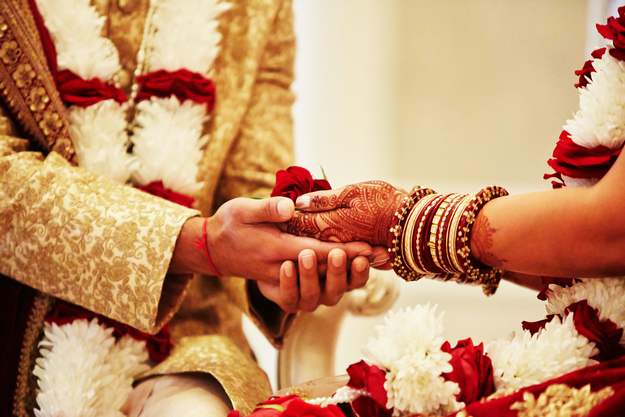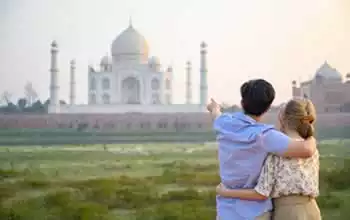What should I expect at an Indian Wedding?
Indian weddings, especially those held within India itself, are in a league of their own. Big, bold and beautiful, these celebrations are far from boring. An Indian wedding will have been planned so perfectly, you wont ever see anything go wrong! The intricacies and details of each aspect will amaze you, from the flowers and decoration to the clothing and jewellery, these events are one of a kind!
Most of the time, the festivities continue over a three-day period with different ceremonies and parties happening on each of the days. Indian weddings are extremely significant within the culture and community; they are a celebration of not only love, but rich heritage and tradition, often from religion and join together family and friends.
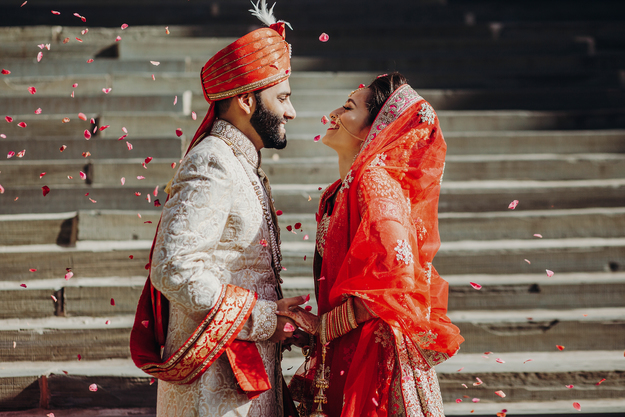
Did you know?
- The date that the wedding is held on is determined by the bride and groom’s birthdays. Astrologists will take these dates and calculate the position of the stars and planets to reflect the date that the wedding will be held.
- The bride’s hands and feet are painted with Henna paint during the Mehndi ceremony with intricate patterns and designs. This decoration not only looks incredible, but Mehndi (what Henna is made from) is known to be a medicinal herb that can promote less stress and anxiety, just what’s needed before your wedding day!
- The ceremonies during the event take place in a Mandap – this is a stage like structure that is often elevated and decorated with flowers and greenery.
- During Indian weddings, a small fire will burn in the centre of the Mandap, known as the ‘sacred fire’. This symbolises the meaning of the marriage being a sacrament rather than a contract and is a witness to offerings made during the ceremony.
- The groom will place a necklace of black and gold beads, known as the Mangala Sutra, around the bride. Lakshmi, the Hindu goddess of wealth, fortune and prosperity, is known to be linked with the Mangala Sutra to ensure the bride receives blessings during her marriage.
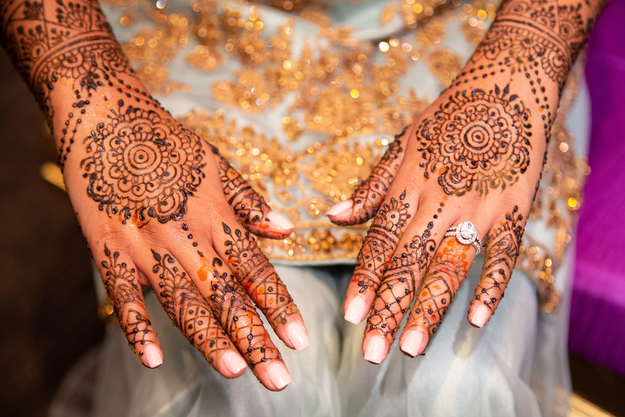
Wendy Wu Tours’ ‘Indian Wedding’
The iconic sights
Bursting with vibrant culture, deep-rooted tradition and mouth-watering cuisine, this tour is truly one of a kind. Head to Delhi and enjoy an exploration of this bustling city with the chance to taste local delicacies. Make your way to enchanting Agra to see one of the world’s most iconic sights, the Taj Mahal. Be inspired by its sheer beauty as you gaze upon this architectural work of art. Spend the day discovering Jaipur, known as the ‘Pink City’ and head to the City Palace Museum as well as the majestic Hawa Mahal known as the ‘Palace of the Winds’.
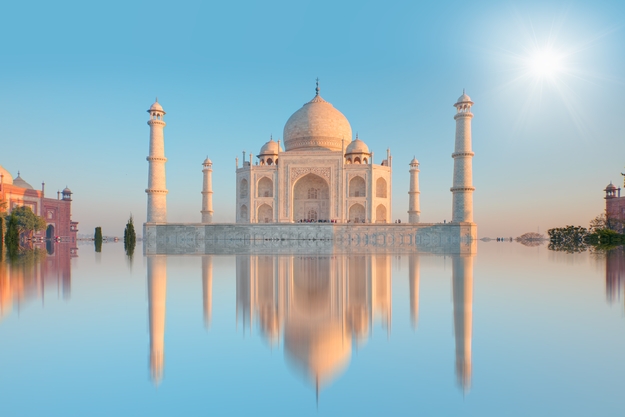
Pay a visit to the imperial Amber Fort, taking time to admire the intricate designs that make up this iconic building. Take some time to relax at the end of your incredible tour – make your way to Samode Bagh, a luxury tented resort set in the grounds of the Samode Palace. Enjoy unwinding with fine dining, meditation, spa facilities and a pool in rural India.
Pre-wedding celebrations
After a day exploring Jaipur, it’s time to get your first taste of Indian wedding celebrations. In the evening, you’ll attend the Sangeet, a celebration dedicated to kicking off the main event the night before the big day. This is the perfect opportunity to get to know the bride and groom’s family and mingle with the guests. The Sangeet is a serious party, boasting extraordinary displays of choreographed dancing and singing to Bollywood numbers, you won’t be able to stop yourself from boogying!
The big day
Today will be a day you never forget – immerse yourself in Indian culture by wearing traditional clothing provided, intricately designed with vibrant fabrics and beading. Attend several ceremonies including the Baraat Swaagat (Welcome), Jaimala (Exchange of Garlands), Havan (Lighting of the Sacred Fire), Gath Bandhan (Tying of the Nuptial Knot), Mangalphera (Walk Around the Fire), and the Saptapadi (Seven Steps Together) to truly understand in-depth the Indian wedding. Enjoy the rest of the evening with mouth-watering cuisine, joy, happiness and an appreciation of the newly weds and their culture.
